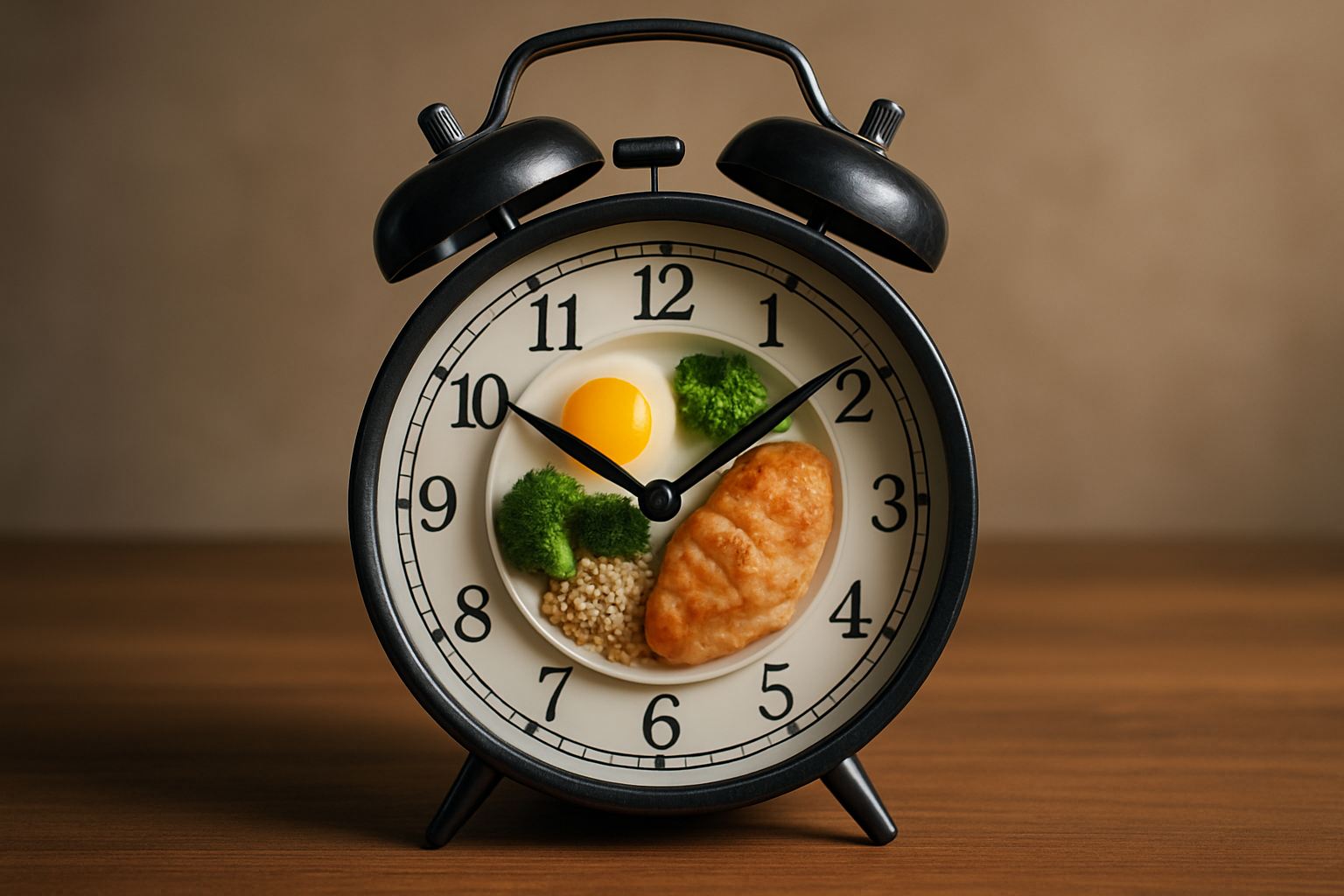Chronobiology: Harnessing Your Body's Internal Clock for Optimal Health
Imagine waking up feeling refreshed, tackling your day with boundless energy, and effortlessly drifting into a peaceful slumber at night. What if the key to achieving this ideal state of well-being lies not in the latest supplement or workout trend, but in the intricate dance of your body's internal rhythms? Welcome to the fascinating world of chronobiology, where time itself becomes a powerful tool for revolutionizing your health.

The Clockwork Within: Unveiling Your Circadian Rhythm
At the heart of chronobiology lies the circadian rhythm, a roughly 24-hour internal clock that regulates various physiological processes. This master timekeeper, located in the brain’s suprachiasmatic nucleus, orchestrates a symphony of hormonal and cellular activities that influence everything from our sleep-wake cycle to our metabolism and immune function.
Our circadian rhythm is influenced by external cues called zeitgebers, with light being the most powerful. As the sun rises and sets, our bodies respond by adjusting the production of hormones like melatonin and cortisol, which in turn affect our alertness, hunger, and overall energy levels throughout the day.
Chrono-Nutrition: Timing Your Meals for Metabolic Mastery
One of the most exciting applications of chronobiology is in the realm of nutrition. Emerging research suggests that when we eat can be just as important as what we eat. This concept, known as chrono-nutrition, explores how our bodies process food differently at various times of the day.
For instance, studies have shown that our insulin sensitivity is highest in the morning and gradually decreases throughout the day. This means that consuming larger meals earlier in the day and lighter meals in the evening may lead to better glucose control and weight management. Additionally, aligning our eating patterns with our circadian rhythm can improve digestion, reduce inflammation, and even enhance the absorption of certain nutrients.
The Sleep-Wake Cycle: Optimizing Rest for Peak Performance
Perhaps the most well-known aspect of chronobiology is its impact on our sleep patterns. By understanding and working with our natural circadian rhythm, we can dramatically improve the quality and quantity of our sleep.
Research has shown that maintaining a consistent sleep schedule – even on weekends – can help synchronize our internal clock, leading to easier sleep onset and more restful nights. Moreover, exposure to bright light in the morning and limiting blue light exposure in the evening can help reinforce our natural sleep-wake cycle, promoting better overall sleep hygiene.
Chronotypes: Are You a Lark or an Owl?
Not all internal clocks tick to the same rhythm. Chronobiology has identified different chronotypes – individual variations in circadian rhythms that influence our optimal times for sleep, productivity, and various activities. Understanding your chronotype can help you tailor your daily schedule to match your body’s natural preferences, potentially boosting your productivity and well-being.
The two main chronotypes are:
-
Morning larks: Early risers who feel most alert and productive in the morning
-
Night owls: Those who naturally tend to stay up later and feel more energized in the evening
By aligning your daily activities with your chronotype, you can optimize your performance and reduce the stress of fighting against your natural rhythms.
Chronobiology in Disease Prevention and Treatment
The implications of chronobiology extend far beyond daily wellness practices. Researchers are exploring how circadian rhythms impact various health conditions and how this knowledge can be applied to improve treatment outcomes.
For example, studies have shown that certain medications may be more effective when taken at specific times of day that align with our circadian rhythms. This concept, known as chronotherapy, is being investigated for various conditions, including hypertension, asthma, and cancer.
Moreover, disruptions to our circadian rhythms – such as those experienced by shift workers or frequent travelers – have been linked to an increased risk of various health issues, including cardiovascular disease, diabetes, and certain cancers. By prioritizing circadian health, we may be able to mitigate these risks and promote long-term well-being.
Chronobiology Hacks for Everyday Wellness
-
Stick to a consistent sleep schedule, even on weekends
-
Expose yourself to bright light upon waking to help reset your circadian clock
-
Time your meals to align with your body’s natural metabolic rhythms
-
Consider your chronotype when scheduling important tasks or activities
-
Create a nighttime routine that signals to your body it’s time to wind down
-
Limit blue light exposure in the evening by using apps or glasses that filter out blue light
-
Pay attention to your body’s natural energy fluctuations throughout the day and plan activities accordingly
As we continue to unravel the mysteries of our internal clocks, chronobiology offers a promising frontier in the quest for optimal health and wellness. By syncing our lifestyles with our innate biological rhythms, we can tap into a powerful, natural way to enhance our physical and mental well-being. The next time you check your watch, remember – your body is keeping time too, and listening to its rhythm might just be the key to unlocking your healthiest self.




